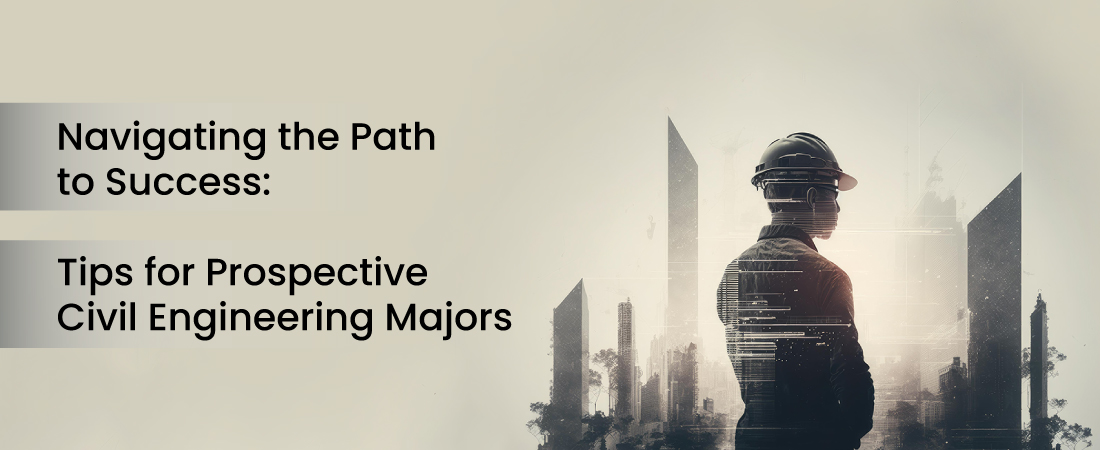
Civil Engineering is one of the most popular engineering programs worldwide. It is even more important in developing economies such as India considering the huge volume of construction and infrastructure projects that are initiated each year. In the last 10 years, India has made significant investments on infra projects and there has been tremendous growth in the number of residential and commercial projects across the nation. This translates to a huge demand for civil engineers who have to contribute to this infra and construction boom. Let’s have a look at what it takes for a civil engineer to succeed and the approach he needs to have, to make a mark in this exciting space.
Understand the principles of construction, structures and design. Be sound in your tech fundamentals. Develop proficiency in mathematics and physics. This will help you quickly resolve issues on the job. You need to work with complex formulas to calculate building specifications. This ensures your structure’s safety and compliance with building regulations.
Get familiar with design codes in use for different countries. Learn about the common principles in design and the thought behind the same. Always check the codes while carrying out the analysis and be familiar with their usage.
Learn to use CAD software (Computer Aided Design) - Do get hands-on experience in developing models, planning, designing and creating structures. Gain technical knowledge in surveying, project analysis and billing, estimation and bar-bending schedules. Learn how to generate BOM using software. If you are into structural engineering, you can simulate the behaviour of the structure and the load effects on various structures. A full building analysis can also be done using computer software.
Learn about 3D Printing tools, 3D printing, also known as additive manufacturing, is a groundbreaking process that involves laying down cross-sectional layers of material to build objects. While widely used in industries like automotive and aerospace, its application in construction is relatively new but promising. Construction 3D printers, specifically designed for this purpose, use digital models sliced into layers to guide the printing process. Materials like concrete, metal, or polymers are extruded layer by layer to create structures. Robotic arms, powder binding, and additive welding are common techniques employed in construction 3D printing. This innovative technology has already been used to print houses, offices, and even bridges, offering faster, more efficient, and sustainable construction solutions.
Please take fieldwork and lab work seriously considering that practical experience is just as important in the long run. On field experience provides practical insights and knowledge no theoretical learning can match.
Project management from start to finish is an important part of a civil engineer's job. You will have to interact with and manage architects, contractors, engineers, and various other building professionals to ensure the project is on course. You will also have to allocate tasks, follow up on schedule and quality issues and address things if any to ensure completion. So excellent project management skills are a must.
Problem-solving skills are very essential to evolve as a successful civil engineer. Despite detailed planning, there could be complex technical challenges related to building design. These could arise due to client requirements, planning limitations, material used etc. You need to be able to innovate, improvise, and arrive at effective solutions to ensure the project continues smoothly.
Teamwork is essential in any civil engineering project. You have to coordinate effectively with colleagues, and external suppliers to complete a project. This includes getting materials in time, ensuring their security, proper utilisation and quality implementation. It is essential to work as a team, managing moods and egos to ensure successful completion while retaining the engagement.
Communication skills are among the most critical in this space. You have to communicate effectively and clearly with architects, clients, construction workers and other professionals most of whom will hail from different states. Effective communication can go a long way in ensuring your project is complete.
Attention to detail is everything. Civil engineering projects demand a high level of accuracy and precision. Buildings have to be built in compliance with safety rules and regulations. Do focus on the smallest detail to ensure quality and durability of your structures.
General learning is crucial in any domain and Civil Engineering is no different. Keep gaining knowledge on various emerging practices, processes, techniques and materials. Learn about eco-friendly structures, cost effective construction, mega projects and new residential and commercial projects in the vicinity. Observe the design, structure and other details. Keep reading about publications offering updates on materials, technologies, and new methods.
Dayananda Sagar College of Engineering (DSCE) offers a 4 year, full time UG program and a two year, full time PG (M.Tech) program in Structural Engineering & Highway Technology.
At Dayananda Sagar College of Engineering (DSCE), the Civil Engineering Department stands out for its commitment to excellence in education and research. With state-of-the-art infrastructure and a team of experienced faculty members, we offer students a comprehensive learning experience.
Our well-equipped laboratories cover various disciplines, including structural analysis, geotechnical engineering, transportation engineering, and environmental studies. Students have access to cutting-edge software for design and simulation, enabling them to enhance their technical skills. Moreover, our research facilities support innovative projects, fostering a culture of inquiry-driven learning. Collaboration spaces encourage teamwork and idea exchange, while our extensive library resources ensure students stay updated on the latest advancements in the field.
At DSCE, we are dedicated to providing top-notch facilities and creating a conducive environment for students to thrive and excel in their academic and professional pursuits.